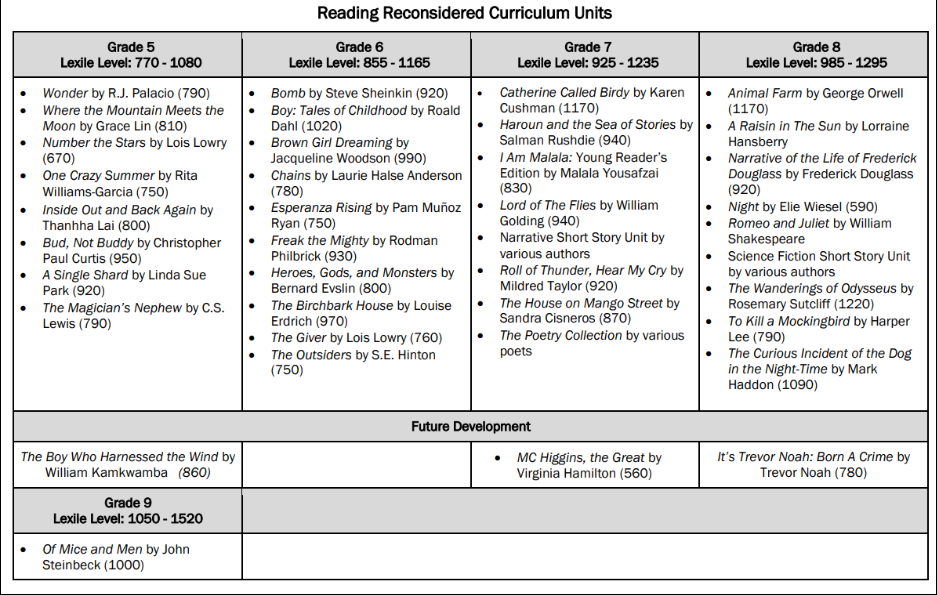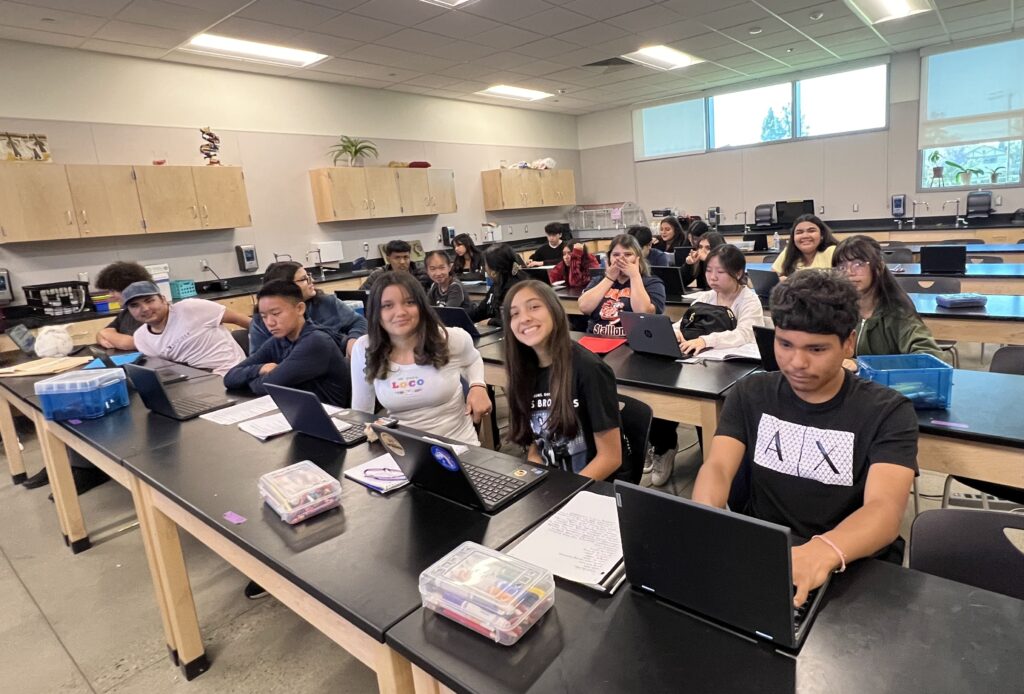Summer is just around the corner and for both remedial and enrichment programs, we humbly think single book units from our Reading Reconsidered curriculum are an ideal match. Our Associate Director of Curriculum and School Support Alonte Johnson-James, explains why:
Summer school and enrichment programs share a common goal of improving and advancing the knowledge and skills of students. They also provide a great chance for the teachers invested in their success to be able try out high quality curricula and newer, more research-backed approaches.
When considering a curriculum that best serves students and teachers, we believe the novel-based, modular units of the Reading Reconsidered curriculum provide the opportunity to support students with building knowledge and practice retrieving this knowledge throughout the unit.
Even more exciting is the “one-stop-shop” benefit of high-quality instructional materials that support the training and development of new and veteran teachers alike.
Here are some of the attributes of the Reading Reconsidered Curriculum that make it ideal for summer programs:
Novel-based:
With summer programs roughly spanning 5 to 6 weeks, our novel-based units are a hit! Leaders and teachers may select any of our 36 novel-based units based on their knowledge of their students. Using novel-based units affords summer school students the opportunity to immerse themselves in a good book and read it cover-to-cover. To support with choosing the best fit text, we provide a scope and sequence for text selection based on the time of year. Consider choosing a recommended beginning of year unit for supporting students through remediation or choose a mid-year or end-of-year unit to advance learning or prepare students for the upcoming school year.

Either way, choosing a unit with students in mind can increase investment and engagement in the novel. One teacher shared that the Lord of the Flies unit allowed students to be “immersed in deep concepts and look at things in a different light, that they would not normally think of. It helps get them involved in the plot of the novel and feel part of it.”
Knowledge and Retrieval:
As previously mentioned, Our student-facing materials provide students with the knowledge-building tools needed to see success in these novel-based units. A knowledge organizer makes the end of unit understandings transparent from the launch of the unit. Daily lesson handouts include a Do Now, Vocabulary Practice, Retrieval Practice and all essential knowledge students will need to access the reading and learning for the day. Additionally, materials also include embedded non-fiction and light embellishments to support teachers and students with key background knowledge needed to access pivotal moments of the text without spending valuable learning time with front-loading content. Including these knowledge-building moments at the “just right” moment allows students to build genuine connections between the non-fiction and the fictional text at the center of the class and deepen their learning and connection to the text.

Teachers will be better able to assess and respond to students’ understandings with the recursive practice embedded throughout units. Vocabulary lessons include recursive practice that revisits key literary and content-specific terms students will need to access the day’s materials and encode into their long-term memory for future study and application. Retrieval practice also assesses students’ understanding and retention of key knowledge and skills taught throughout the unit. Additionally, daily lessons include recursive practice of newly taught and previously learned content from the Do Now to the Exit Ticket. Teachers can leverage various portions of each lesson to gather data and best plan for how to respond to this data using the provided lesson materials.

One school leader had this to share about the retrieval practice:
I love the vocabulary boxes for exposure and how these are embedded words in the text. I also appreciate the periodic review of terms. The retrieval practices are a great quick check for where students are at and to emphasize what key details students need to retain.
One-Stop Shop:
The book-based Reading Reconsidered curriculum is highly regarded by school leaders and teachers because of its rigor, its accessibility and the embedded teacher support. Teachers are provided with unit and lesson plans that outline essential unit understandings as well as the standards that are practiced and assessed throughout the unit. The lesson plans serve as guides for teachers to ensure effective implementation with suggestions for how to approach the day’s reading and plans for engaging students in the learning, and an additional benefit to having printable daily lesson plans and student packets is it simplifies planning and allows teachers to focus on assessing and responding to student work with intentional considerations for adaptations and differentiation to tailor lessons based on students’ abilities and needs. Ultimately, the Reading Reconsidered curriculum lowers the planning lift for summer school teachers and makes the curriculum well-poised to serve as a training and development tool for more novice teachers. What’s even better? All materials are shared in Word form for easy formatting, adapting, and printing.

If you are looking for a literacy curriculum for this summer, choose Reading Reconsidered for its:
- Novel-based, modular unit structure to best select rigorous and engaging text that invest students in the novel and their learning
- Consistent recursive practice that reviews key knowledge students will need to master the unit’s content and provides teachers with consistent data to inform data-driven instruction
- “One-stop” approach to essential teacher and student facing materials that support implementation and differentiation
Email us at ReadingCurriculum@teachlikeachampion.org if you’d like to learn more and click here to see additional sample materials .



